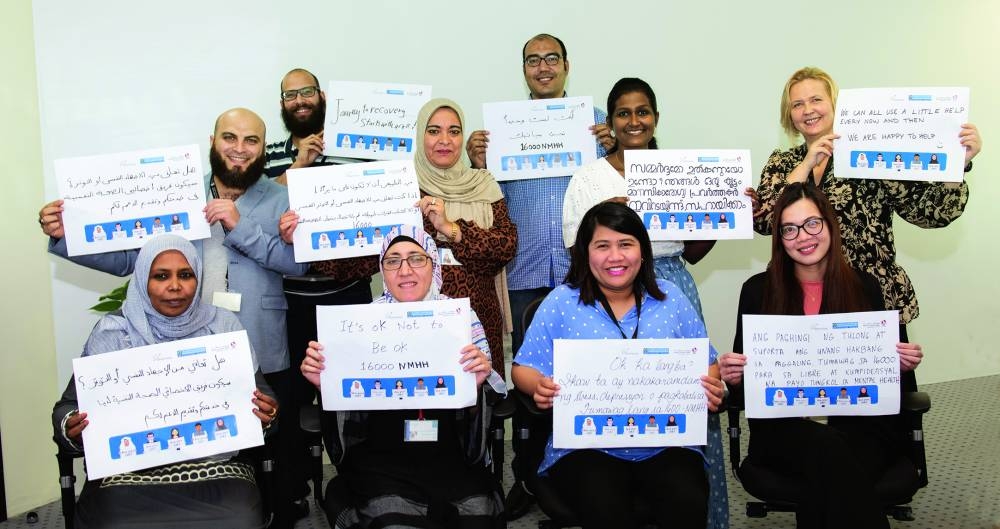The National Mental Health Helpline has seen a 32% surge in total calls between 2022 and 2023.
Since opening in April 2020, the helpline staffed by a dedicated team of professionals, comprising psychiatrists, psychologists, and mental health nurses from Hamad Medical Corporation (HMC), continues to respond to an increasing demand for confidential, mental health support from communities across Qatar.
Callers to the helpline are from various backgrounds and from both genders, with slightly higher use (56%) by females.
Most of the callers (60%) are known to the mental health service, and the helpline provides easy access to appointments, medication and advice.
New callers (40%) seek help in managing difficulties sleeping, anxiety and depression, and other psychological stresses.
Many callers also seek help and advice on behalf of a family member, friend or colleague.
Iain Tulley, national health strategy lead for mental health and chief executive of the HMC's Mental Health Service, highlighted the significance of Qatar's National Health Strategy, which has mental health and wellbeing as a key priority.
“The continued dedication and expertise of those who operate the helpline has made a huge contribution to the health and wellbeing of people in Qatar,” he said.
“The team is able to respond to increasing complexity in cases and offer support at times of need,” Tulley continued. “The helpline is becoming the primary access point for men and women of all nationalities ... this is reflected in the growing demand for the service.”
The helpline has a team of professionals who offer a range of support, from assessment, brief intervention and sign posting, to help or facilitating referral to more specialist help and treatment.
Katja Warwick-Smith, assistant executive director of Clinical Service Development and head of the Helpline, highlighted the diverse composition of the team, comprising international, multilingual, and inter-professional staff to cater to the varied needs of callers.
Emphasising linguistic diversity, she noted that experts are proficient in Arabic, English, Tagalog, Hindi, Urdu, and Malayalam, aligning with the multicultural fabric of Qatar.
Approximately 70% of callers are Arabic speakers and 22% are English speakers; of the remaining 8% of callers, most are Malayalam or Hindi speakers.
The Helpline offers tailored support streams for parents with children, adults, older adults, and healthcare professionals, ensuring confidentiality and providing the option for follow-up interventions as needed.
Accessible via the Qatar Healthcare Unified Contact Centre at 16,000, callers can select their preferred language (Arabic or English) and choose option 4 for the Mental Health Helpline.

